This Hashtag Shows Us What Mental Illness Actually Feels Like

By:
When attempting to describe depression, The Diagnostic and Statistical Manual of Mental Disorders (DSM) by the American Psychiatric Association reads like, well, a manual:
"Mood represents a change from the person's baseline.
Impaired function: social, occupational, educational.
A loss of interest or pleasure in daily activities for more than two weeks."
In contrast, the organization Mental Health America has started a social media campaign using the hashtag #mentalillnessfeelslike in order to focus on what it is like for an individual to experience these illnesses — rather than using clinical terms.
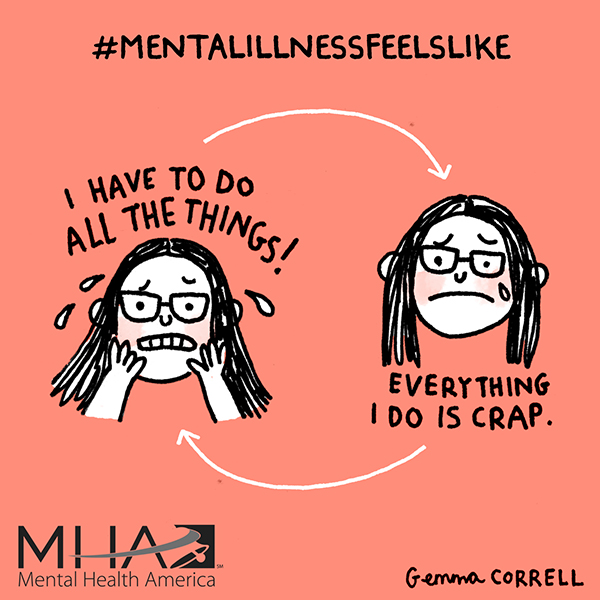 Gemma Correll
Gemma Correll
“Clinical terms are the words used by doctors and other professionals to describe the symptoms of a disorder, but often times those words don’t do justice to what life with a mental illness feels like,” Danielle Fritze, director of public education and visual communications at MHA, said in an email interview with ATTN:.
Describing a psychological disorder seems like a big enough challenge in the first place, since many of the symptoms are internal. But in addition to that, two people with the same diagnosis can experience the same symptom and describe it in very different ways, Fritze explained.
“Let’s take fear for example: one person might describe fear as being scared to the point of feeling paralyzed, while another might describe fear as an overwhelming urge to run away,” Fritze said.
“It can be confusing to align your personal experience with mental illness to clinical criteria, and sometimes contributes to ongoing silence or hesitation to get help," she continued. "It’s important for people to talk about how it feels to live with a mental illness.”
Since its debut in early May, the hashtag can be found on every social media platform from Twitter to Instagram.
In addition to compiling more than 2,500 crowdsourced posts for #mentalillnessfeelslike, MHA hired cartoonist Gemma Correll to illustrate descriptions of mental disorders pulled from people using the hashtag on social media.
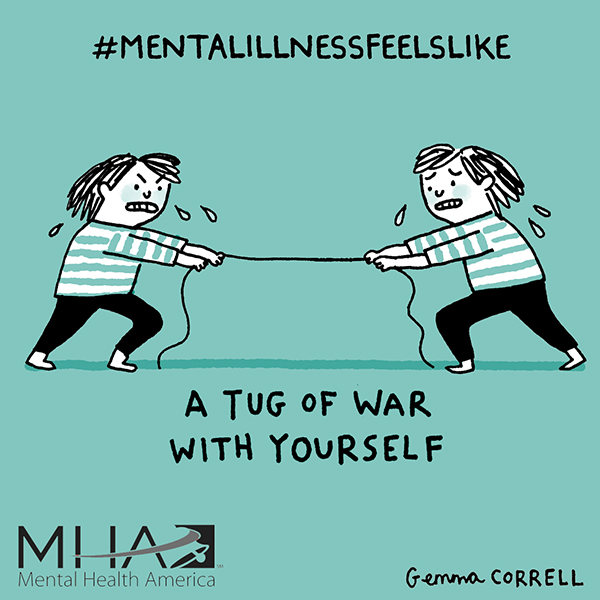 Gemma Correll
Gemma Correll
“I've chosen to illustrate what I think will work well visually, and I'm also trying to get a good balance between the different facets of mental illness and between the illnesses themselves,” Correll wrote in an email to ATTN:.
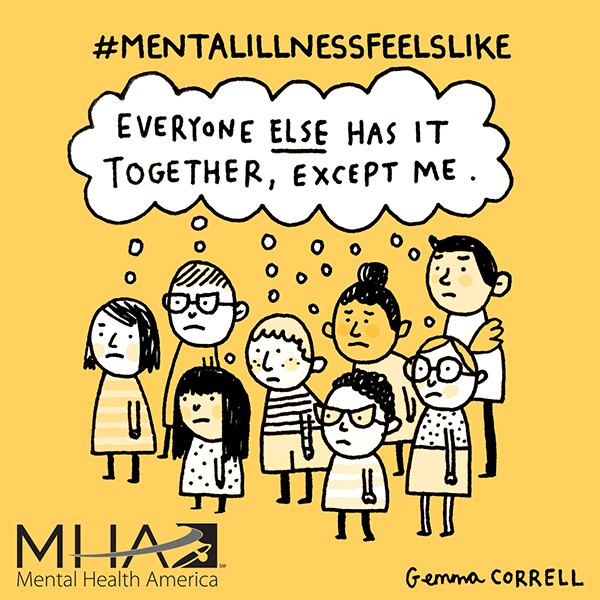 Gemma Correll
Gemma Correll
The task of capturing something as intangible and seemingly abstract as how one feels experiencing a mental illness might be intimidating to some, but this was actually what drew Correll to the project.
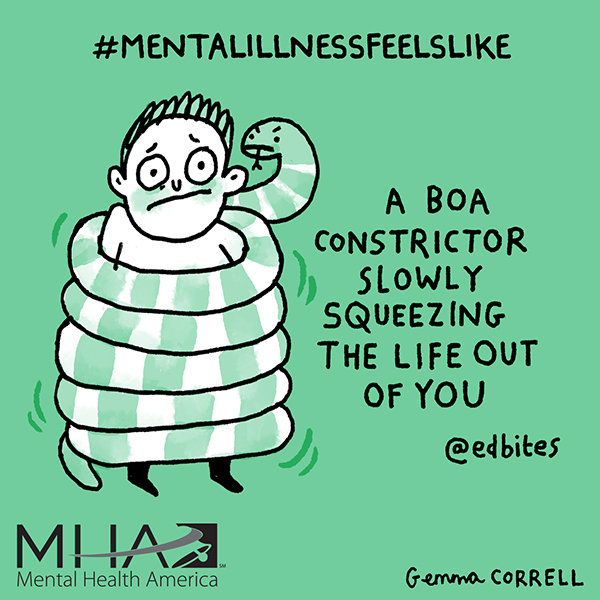 Gemma Correll
Gemma Correll
“It is difficult to put the feelings and symptoms of illness into words sometimes, and I wanted to somehow personify these things," Correll said. "Some of the answers have been very straightforward – like the boa constrictor – but I'm also trying to find ways to draw the more abstract ones, too.”
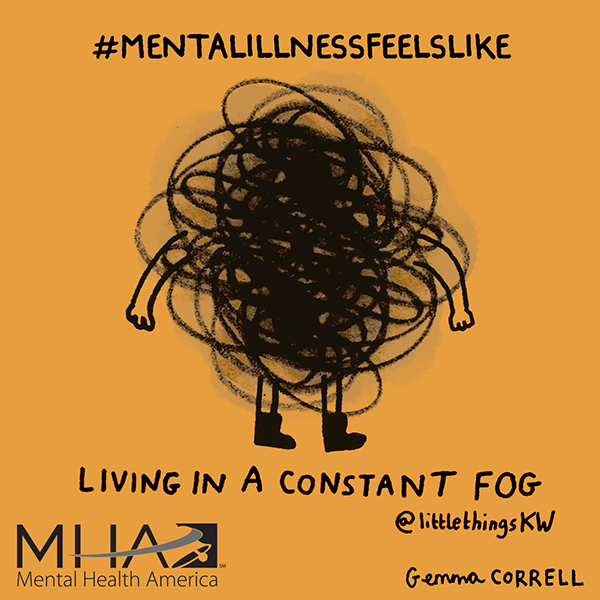 Gemma Correll
Gemma Correll
While there have been huge strides in diagnosing and treating mental illness, stigmas and misconceptions around it are still rampant. According to Fritze, the best way for people to fight stigma is to talk openly about mental health and mental illness, and the hashtag #mentalillnessfeelslike is one way to do that.
“These are common issues – experienced by 1 in 5 American adults each year – people don’t need to feel ashamed or secretive about struggling with their mental health,” Fritze said.
